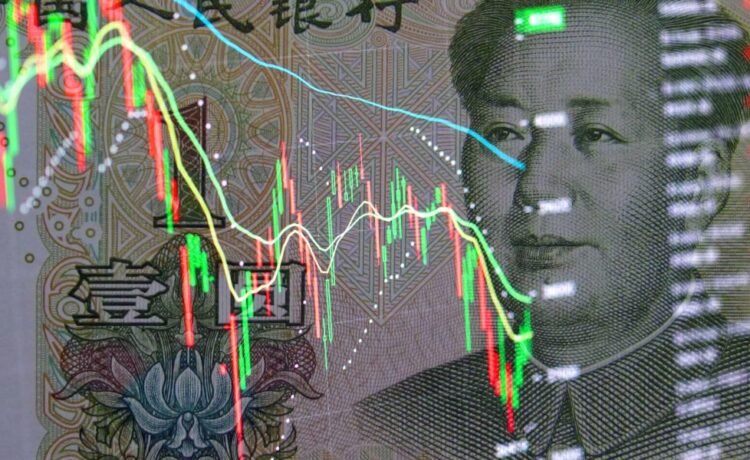
Foreign companies pulled more money from China last quarter, a sign that some investors are still pessimistic even as Beijing rolls out stimulus measures aimed at stabilizing growth.
China’s direct investment liabilities in its balance of payments dropped $8.1 billion in the third quarter, according to data from the State Administration of Foreign Exchange released late Friday. The gauge, which measures foreign direct investment in China, was down almost $13 billion for the first nine months of the year.
Foreign investment into China has slumped in the past three years after hitting a record in 2021, a casualty of geopolitical tensions, pessimism about the world’s second-largest economy and stronger competition from Chinese domestic firms in industries such as cars. Should the decline continue for the rest of the year, it would be the first annual net outflow in FDI since at least 1990, when comparable data begins.
Companies that have pulled back some China operations this year include automakers Nissan Motor Co. and Volkswagen AG, along with others like Konica Minolta Inc. Nippon Steel Corp. said in July it was exiting a joint venture in China, while International Business Machines Corp. is shutting down a hardware research team in the country, a decison affecting about 1,000 employees.
The prospect of an expanded trade war and deteriorating relations with Beijing during US President-elect Donald Trump’s second term may further weigh on investment. “Geopolitical tension” is the topmost concern for members of the American Chamber of Commerce in Shanghai, according to the group’s chair, Allan Gabor.
“It makes it difficult to plan big investments, but on the contrary, we see a lot of members making small and medium-sized investments,” Gabor said in an interview with Bloomberg TV last week during the China International Import Expo. “It’s a much more surgical investment environment.”
Still, government efforts in late September to stimulate the economy has already benefited one group of foreign investors, with the value of stocks held by foreigners jumping more than 26% from August, according to separate data from the central bank. The Chinese benchmark stock index gained almost 21% in September after the start of a coordinated stimulus effort, although it has since given up some of those gains.
By contrast, outbound investment from China has been rising sharply. In the third quarter, Chinese firms increased their overseas assets by about $34 billion, according to the preliminary data from SAFE. That took outflows so far this year to $143 billion, the third-highest total on record for the period.
Chinese companies such as BYD Co. have been rapidly increasing their overseas footprint to secure raw materials and build up production capacity in foreign markets. That trend is likely to continue and expand, as more countries put tariffs on some Chinese exports such as steel and the US threatens to impose punitive tariffs on all Chinese goods.
A newsletter for the boldest, brightest leaders:
CEO Daily is your weekday morning dossier on the news, trends, and chatter business leaders need to know.
Sign up here.






